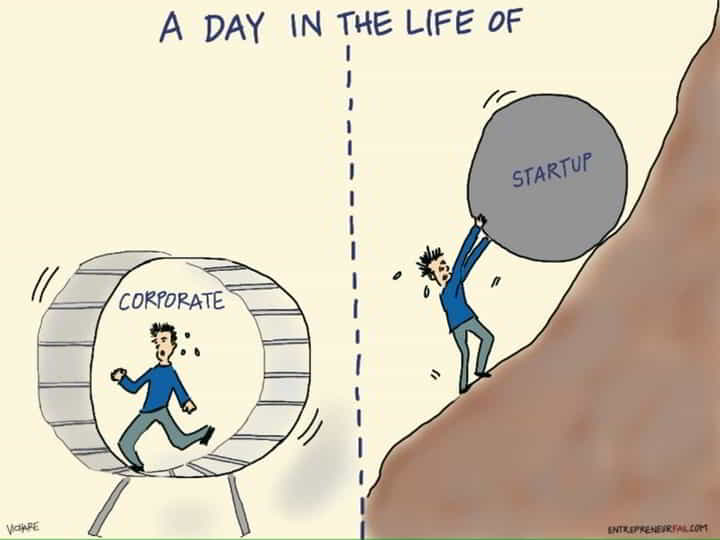RetirementDrive
Welcome to RetirementDrive - the new retirement revolution is here.
In days gone by retirement meant at 65 we stop working full time and retire on an old age pension from the state and if we are lucky, we will have saved enough to have a private pension scheme so we can enjoy life’s luxuries a little more.
The average age of death is roughly 81 which means after working 45 plus years we have 16 years of doing the things we want to do then we die. No wonder over the last 40 years each generation has looked at this wonderful prospect and thought - stuff that, why work for 45 plus years and then have such a short time free to do as you wish, often and quite frequently in poorer health than when in your forties.
Things change in the way we consider retirement
Financial institutions and governments peddled the same message - save for your retirement with a pension fund. So, lots of people did and it partially worked but many also lost out because pension funds did not always perform as promised. Also, people invested in company pensions schemes and if the company folded their pension also folded. Fortunately, in the 80/90s things began to change, predominantly with the housing market, but not exclusively and people found other ways to not only invest for later life but also started to look at diversity of careers.
People have started to look at their lifestyle choices and happiness as well as the financial need to have enough money to live comfortably. Today, many employers are allowing flexible working and allowing older people to work less days or job share or take their pension and then do contract work.They can include carrying on working, possibly part time or in a completely different job, or using hobbies, vocational work or other means to add value, enjoyment and income in retirement.
Many people through their lives build value in their home and other property and use that as a ‘pension’. Some do part time work after stopping their main job. Most people today will need some form of private pension scheme or additional income which can come from a number of sources to bolster their money in retirement.
RetirementDrive
Welcome to RetirementDrive - the new retirement revolution is here.
People have realised the old-fashioned way of retiring isn’t such a good prospect so change it, do something different. It does not need to be the way it was. The prospect of relying on the state for money.
Here are some initial thoughts about retirement. GO!
Here are some facts and stats about retirement. GO!
Planning for your retirement (or even thinking about it!) when you’re young isn’t easy. GO!
Our thoughts about retirement are almost pre-programmed – see why and how. GO!
When you leave school it can seem that things are pre-planned – it doesn’t have to be this way. GO!
There are choices you can make when you are relatively young that will improve your retirement as well as the rest of your working life. GO!
If there’s something you really enjoy doing, it’s possible you could make money from this AND improve your retirement. GO!
Where can you go to get the best advice about retirement? GO!
See some ways you can save money for your retirement GO!
See some other slightly different ways you can create your own retirement fund. GO!
See some hard facts from people who are considering retirement. GO!
See a video describing three things that will make you happy in retirement GO!
If you’re a visitor to our site you can join and download information, assess your own health and create your own action plans, and even contribute to our site. GO!
We have some info on the next steps you can take. GO!
We have some additional information and stuff on this subject. GO!
Some Initial Thoughts About Retirement

The retirement revolution is here - it doesn't have to the way it was
People have realised the old-fashioned way of retiring isn’t such a good prospect so why not change it, do something different. It does not need to be the way it was. The prospect of relying on the state for money is risky and outdated.

Older life revolution
Why not forget the word retirement and call it older life freedom. Choosing a life you want to live and DOING IT!!
Facts About Retirement
according to NHS England we only enjoy on average 10 years of good health in retirement
Life expectancy in 2020 is 79 for male and 82.9 for female, a decrease for both on 2018
The average age of retirement was 59 according to a recent survey by Sunlife; this is money.co.uk
Of the total working population of UK, 1.2 million people over 65 are still working and this is on the increase
33 per cent of people aged over 55 have made changes to their retirement plans as a result of the pandemic, and those workers are delaying leaving the workplace by an average of two and a half years. This is money.co.uk
those of us aged 65-plus are likely to be responsible for at least 50% of UK employment growth in the next 10 years. Aviva
55% Of people hate their jobs and 35% are actively seeking a career change; zippia
If you retire at 65, you have a 76 percent chance of living ten more years, a 38 percent chance of living 20 more years, and a 5 percent chance of living another 30 years.
Things to know before retirement
Tina and Norm provide some top tips to plan your time to retire, things ‘We Wished We Knew Before Retirement’. In the years leading up to when you retire, we recommend discussing ideas that will shape your early retirement years. If you are in a relationship have a truly honest discussion about what you each want from retirement.

The problem is that planning for something in our twenties (when it might all change) isn’t easy
The problem with pensions and saying; start saving now for your retirement and live a fantastic life when you stop work. The problem is every 7 years or so our lives change, we change, our mentality often changes based upon life experience; The desire/vision at 30 to live abroad and play golf all day, relax with family and friends, enjoy life. Life often can change our vision of the future.
Click on any of the tabs on the right to see more information

Retirement is like winning the lottery or not
People often dream of retirement, this mystical period in time when you can do what the hell you like. It’s the same dream as winning the lottery. So why do people fantasize about retirement, often its because they hate the job and life they lead. 55% of people hate the job they do and 35% are actively seeking to change careers..
Why was the system like this and why has it changed?
Maybe in the post war era when people had less choice, no social support and it wasn’t a developed society you had to work to survive and getting any job as long as it paid money was the important factor. The mentality back in this era was at 16 if you are really clever go to further education or get a job. Work philosophy then was getting a local job, usually following in family footsteps, stability, regular stable work. The thought of do a job you are really happy with never really entered into the equation. It has taken several generations and society development to change later life working. But even today people get a job to earn money. You only need to stand on the train station on a morning and see the faces of the unhappy souls stood there wishing they were somewhere else.

I hate my job – 68% of people would change careers if they could
So therefore, if you loved the job, you do and it presented you with a work- life balance would you ever retire. Even better if you could control your hours after 50 would you continue to work until you were physically and mentally capable especially if the job ticked all your boxes, the answer is yes.
With the new world of working since the Covid remote working is giving everyone and opportunity to rethink work. Some of us who are lucky enough already to work from anywhere, brilliant. For those whose who cannot but would like to need to set out their plans to change careers to a portable job role.

I hate my Life – We know that 46% of people across the UK are happy
Not only is it jobs people detest but also many over 54% of people are not fulfilled in their lives. So many people seem to want to run away from everyday life at some stage. Therefore, it’s natural to think at retirement I can do exactly what I want and when. Why wait until you are two thirds through your life to find out it’s not that easy as well.

Retirement dream and winning the lottery is stopping you achieving your dreams
Why stay in a crap life and crap job and prey every night that you win the lottery, because we think its luck. If I could just win the lottery, I would be happier and more contented, wrong I am afraid.

Don’t wait for the Lottery win, create your own
Take control of the life you have and make a plan to change it. Don’t put your life on hold and hope and prey you win the lottery. Go out and make your own lottery win.
Look at the video about whether you should quit your job below from this link – it’s quite disturbing.
Should you quit your job?
Should you quit your job and start a business? Joe Rogan & Garyvee talks about how to know when to quit your job and how to actually do what you love. This will be the most life changing speech you will see. It will motivate you to quit your job at the right time.

The old thinking on life
Life can be very structured and as we grow up our opportunities are forged often by the life we lead and our upbringing. You might say how can I decide on a career and retirement when I am 16. It's difficult and not everyone gets it right. Some change in later life to a different career and it's no big deal but many successful, famous people will say they always wanted to do their chosen career. The key is it must be vocational and flexible. You must be in a position when you are older to make changes to your career and work patterns.
We get trapped in the workplace with social trappings
Often what happens is we start work, we earn money, we start to spend, we start to borrow, we spend some more and then get a mortgage and then get a partner and then get a baby and we have to work to pay them everything. Simple.

It all starts at the beginning when we leave school
If your parents are professionals, it is often very likely that he offspring will be professionals. Dependent on your background and insight leads to the career choices you might take before entering the workplace, even before university.
We don’t stop and think at that time I want a job that I would really enjoy. In fact, many students when choosing their options for university don’t choose a degree course that will further their career and talking to many thousand year two students what do you want to do when you leave university, the answer is I don’t know.
How many years can I expect to remain healthy in retirement?
According to government statistics, on average we live 20 years in retirement [broad statement. Actually 16 years is correct] During this period we can expect typically to enjoy half this time in health. The other half is poor health. The Government is 2018 set up an initiative to get people in retirement to have healthier lives and introduced an 8-point plan. But often you could argue that staying healthy in retirement is great but if the person has spent a lifetime in a high impact sport or drank alcohol for the British championship the proverbial horse has already bolted through the gate and across the field.
So if half of your retirement is currently in poor health due to life choices and no matter what you do it cannot make up the difference then you need to tell everyone else half your age to take more care.
So what’s the answer; Well its start earlier

The key to success is to start younger and forget retirement at all
According to government statistics, on average we live 20 years in retirement (broad statement. Actually 16 years is correct). During this period we can expect typically to enjoy half this time in good health. The other half is in poor health. The Government in 2018 set up an initiative to get people in retirement to have healthier lives and introduced an 8-point plan. But often you could argue that staying healthy in retirement is great, but if the person has spent a lifetime in a high impact sport or drank alcohol for the British championship the proverbial horse has already bolted through the gate and across the field.
So if half of your retirement is currently in poor health due to life choices and no matter what you do it cannot make up the difference then you need to tell everyone else half your age to take more care.
So what’s the answer; Well it’s starting earlier.
Do I enjoy my work? Will it sustain my happiness for years to come? Can I change my role in the future and move into new areas? Can I reduce my hours and still retain some of the benefits I enjoyed? Will my work provide me with the drive and adrenalin kick I need in later life?
If the answer is yes then you need to think about how you develop a financial portfolio around your future. It's no longer about working until a fixed age then retiring.
80 years of happy
This is a great video showing it’s possible to continue to be happy well into old age

Make money from your hobby
Wouldn't it be great if you could enjoy your hobby and also make some money doing it? Although not every hobby lends itself to this, if you plan it properly it can work. You need to ensure it's marketable and has a big enough audience - you can read more by clicking the image.
You can learn how to make money from your passions and hobbies and how to turn them into a profitable career over time. Additionally, learn how to effectively market your brand in the digital era - the advent of social media platforms has rendered it easier than ever before in the digital era to monetize your passions and hobbies. There are ample ways in which hobbyists have been able to generate passive income streams from their passions and quit working their unfulfilling 9 to 5 jobs.
Click on any of the tabs on the right to see more information
Every 7 years you need to be doing a full review of your life, your financial situation, your health and happiness factor and deciding what you want to do for the next 7 years.
If you work in a well-paid job or powerful demanding job you can still say; do I want to do this job all my life. If I could build a second job alongside this one and gradually swap what a perfect scenario.
What if, is a great term to use when challenging yourself. What if things go wrong that I hadn’t anticipated? Nobody has a crystal ball and can foretell the future therefore every seven years you need to do that review.

Click the image to learn more.
If you are lucky enough to have a good job this is a perfect springboard to stopping and thinking about what you want to do in the future. You might think I have a long-term career here when I am fifty, I will be senior and have a great job and pay. But what happens if your company changes direction – where is your back up plan.
If you are a dustbin man it’s the same principle, do you want to work on bins all your working life, is there something you could do differently, retrain, start an eBay business, develop hobby skills or interest, you might say I like being a bin man. True, but it’s very physical and things wear out when you get older, what happens if in your fifties you cannot do the work anymore, where is your back up plan?
I’m am going to bust a gut then play golf all day, go on cruises and enjoy life!
I am going to work hard and regardless of whether I like the job or not I will stop working at 55 and play golf all day and go on foreign holidays and do my garden. If you have spent a life time in a challenging job or using your brain a lot none of the above will provide the stimulation that you need and you will finally when you are all cruised out start to look for alternative stimulation and remember you only have 10 years of good health.
Where’s the back up plan?

Where do I go to get the best advice? Sadly there isn’t anywhere
If you want financial advice for taking out a pension there are thousands of advisors out there but if you are wanting advice on the best things to do with your life, career, business, investment, choices etc then there isn’t one outlet. You can read and talk to people from all backgrounds of life.
Doing the right thing and making the right choices not only takes time and planning but focus, planning and reviewing as circumstances change.
Lottery winning, pension fund, same job, are the lazy option and what the majority of humans go for. Its like losing weight. We all would love to take a pill and the fat disappears that’s why weight loss schemes make millions every year. The reality is there is no quick fix to losing weight you have to change your physical, food and lifestyle habits. Same as choosing what you do in your life.

How can you save for retirement?
There are many ways to save for retirement – some have tax advantages, others score on flexibility. RetirementDrive is aimed at giving you information to decide what’s right for you – whatever stage of life you’re at . Which’s guide shows how to save at different stages of life.
It may pay to consider:
Augment your state pension by paying additional NI contributions or deferring payment.
Pay into a personal pension – if your company matches your contribution then this is a great way to save – you get an extra 100% plus tax benefits – see the calculator below!
You can see more about paying additional NI, deferring pension and paying into a personal pension.
What types of traditional pensions schemes are there?
There are many different types of pension scheme available with many different options. You are always best to seek professional advice regarding these schemes from a qualified expert. These experts do get commission from the advice therefore its important to do your own homework as well. Don’t make quick decisions.
There are two types of private pension offered by the pension companies in our comparison, and we also look at workplace pensions.
A personal pension plan
When you appoint a pension company and they choose the funds you invest in or give you a limited set of options. The money is put into investments (such as shares) on your behalf by the pension provider.
Self-invested personal pension (SIPP)
With these, you choose where you invest your cash, so it’s a kind of ‘DIY’ method. There’s a large list of funds, shares and other assets to choose from – and you can even buy property with it.
If you don’t want to choose your own pension funds then speak to an independent financial adviser to talk about the best pension plans for you.
Workplace pensions
All employers now have to enrol their eligible employees into a workplace pensions scheme – unless they opt out. Eligible means UK based, not already enrolled, 22 or over (but under state pension age) and earning more than £10,00 a year (2019-20). This was introduced to encourage people to save for their retirement – the minimum amount you have to contribute is 5% from you, 3% from your employer AND the government give you tax relief on your contributions
There are some other things you might want to look at in the tabs below.
Click on any of the tabs on the right to see more information
First you need to think what you’ll need in retirement. A rule of thumb says you’ll need 80% of your pre-retirement income, based on the fact your expenses will normally be less. You might have paid off your mortgage, and it’s amazing how much going to work costs!
It’s better to work it out. Start with where you’ll get money from. This includes your state pension, company or personal pension, and the money you’ve saved up and invested for retirement. Some people invest in housing, or building a business, or developing assets or hobbies that generate cash. The key to remember is – don’t put all your eggs in the same basket. You don’t want to get to 70 and your business crumbles.
Then look at what you’ll be spending, and see how these compare. You can use the calculator below.
MoneyHelper (previously Money Advice Service) have a pensions calculator which helps you understand how much you’ll need in retirement and how to get there.
Workplace pensions
These are arranged by your employer. If you’re aged between 22 and state pension age, and you earn £10,000 or more, you’ll be offered one.
Workplace pension plans usually involve you making contributions from your salary. Your employer contributes to the pension too, usually paying 3-10%.
If you join one of these workplace pension schemes, you’ll get a payout when you retire. The amount you get with these pension plans is based on how much you paid in and how long you paid in for. It’s also affected by how much profit the provider’s investments have made
Personal pension
A personal pension is when you appoint a pension company and they choose the funds you invest in. A workplace pension will often take the form of a personal pension.
However, even if you’re not employed, you can still apply for a personal pension. This is good for self-employed people.
To get a self employed pension, you can go directly to a UK pension provider. You’ll pay monthly pension contributions and they’ll choose which funds you invest in.
It depends on whether you choose a Financial Conduct Authority (FCA)-regulated private pension. If you do, then the Financial Services Compensation Scheme (FSCS) will protect the first £85,000. Every pension company found in our private pension comparison is FCA-regulated. But not every pension scheme, UK wide is FCA-regulated. So if you find one elsewhere, be sure to check it carefully.
Yes. You might like to do a pension transfer if you’ve changed jobs, and your new employer uses a different pension company for their pension scheme. In this case, you can combine pensions.
Or you might need to do a pension transfer if your current pension scheme is closing, or if you’ve found a better deal on another private pension.
You might be charged a fee to do a pension transfer if your current pension has exit fees attached to it.
The general advice for pensions is to contribute as much as you can as early as possible. A good rule of thumb is to take your age, halve it and contribute that percentage of your income into your pension to have a comfortable retirement.
So, if you’re 30, then you should contribute 15% of your income to your pension.
But this thumb rule really depends on what lifestyle you want at retirement. If you are not materialistic and will live in a small house/mobile home/ log cabin then the amount of money you need will differ.
• Placing all your investment in the same place or with the same company
• Not have a balanced portfolio of risk and reward
• Paying excessive fees and not shopping around
• Ignoring inflation
• Relying to much on media and hype marketing strategies
• Trying too hard to judge the market
• Thinking buying other commodities is a good idea without studying the long term facts
Buying commodities
It’s easy to think that commodities such as gold will outperform stock market investements. While gold can be a good hedge against thing going terribly wrong, see the chart below.


Alternative long term funding options for later life
Today there are so many options for generating income in older age that people may prefer. There isn’t a get rich quick option other than the lottery or you are one of life’s 0.1% JK Rowling/Ed Sheeran who went from rags to riches in a shot. Setting those fantasies aside. There are so many ways you can earn income in older age. Again, it depends on what your lifestyle will be in older age
Get a flexible career or business
When planning your future income think about the character you are and the roles you have had. Think about the ideal job that would make you happy. Think about flexibility – can I do this job from anywhere and from any country??
Can I build a business that no matter what generates income even when I am not there?
Think of all the work that is done around the world electronically and you could be anywhere on the globe as long as you have access to the internet.
Click on any of the tabs on the right to see more information
It’s not just about your house it could be buying additional property for rental income- either one or several. They could be in the UK or abroad. The good thing about rental income is it goes up with inflation and your property increases in price as well. If you live in a property wealthy area such as London you can rent your own home and rent another house in a cheaper area or even abroad and use the difference in price as income. You may have inherited money or property. Don’t sell unless you have to. Property has historically gone up between 7 and 12 % a year and there are not many investments around that make that sort of return.
If you have your own home you can take money out of it to fund your later life – this is known as Equity Release. You can look at EquityDrive to see the pros and cons of equity release.
In today’s hi-tech world you can buy and sell things online with little or no effort. These days many people have loads of stuff they no longer want or need. EBay is a good starter – be careful not to amass too much stock!
If you want to travel the world working in different places you can use any skill or qualification earned at school, college or through your work to teach abroad. If you learned a foreign language at school or college you can teach that language or alternatively any other of your skills at home or abroad. If you want to live in a foreign country and you speak the language you can become a paid translator.
You can also teach online. Any skill that can be transferred to others is an asset and you can pass this on for extra income.
It’s not as difficult as you think. BBC Bitesize have a good article on how to proofread. You can also download Grammarly (free) to practice!
If you have professional knowledge, skills and attributes you can start to make money from them.
People have given up their day jobs to become internet influencers and earn 10-fold their annual income. You can see more details at Influencer MarketingHub or read more at ‘Become and Influencer‘.
If you have been in the business or corporate world and have lots of experience why not become a business or life coach. If you are interested in becoming a life coach you can read more at ‘How to Become a Life Coach and Attract Your First Paying Client‘ or ‘The Ultimate Guide to Becoming a Life Coach and Building a Successful Career in Life Coaching‘
If you fancy doing a bit of work occasionally to earn a bit of money, which you can dip in and out of, then you can start one of a number of jobs.
You can do paid surveys, complete, organize or gather surveys.
If you can drive you can make money driving, perhaps for Uber but be careful as it might not work.

Retirement transitions in later life - hard facts
As we said at the beginning - what we think we would like to do when we get older and the reality is sometimes totally different. It's our life journey and experience that determine this.
Here are some interesting lifestyle views of people retired or thinking or retiring;
- 1 in 5 UK adults found it difficult to adjust to retirement
- 56% of people didn’t do anything to prepare for older age living
- 32% of potential retirees worry about losing social connections
- 24% fear losing purpose in life
- 33% worry about getting bored
- 17% fear feeling lonely when they stop work
- Recent survey found 24.1% of retirees were widowed and the divorce rates for over 65s have been booking the falling divorce trend with an increase of 35%
- About 3.8 million older people live alone. 70% are women
- 30% of the retired people indicate they feel lonely
- Between 2008 and 2031 the increase in the number of 65-74 years olds living alone will be 44% and the increase in those aged 75 plus living alone will be 38%
- 20% of retired people are suffering with severe sight loss
- 70% of people over 70 are suffering severe hearing loss
- 46% of pension age adults are classed as having some form of disability this rises to 67% by 2040 according to Age Concern.
- The proportion of people with multi-morbidities among those aged 65-74 is 46%. This proportion increases to 69% among those aged 85+
- 1 in 14 people over the age of 65 (7%) and 1 in 6 people over the age of 80 have dementia (17%)
Depression is the most common mental health problem among older adults; affecting 22% of men and 28% 0f women aged 65+ - 1 in 5 over 65+ men and 1 in 10 women drink enough alcohol to harm themselves
Three things that will make you happy
Don’t wait for the 16 years of retirement to enjoy life, start planning in your thirties and forties not just money but a lifestyle, family, social, and wellbeing. It’s not complicated and as you can see people are just not doing it. Maybe it’s human nature as it’s not instant coffee and can be solved and worked at over a longer period of time, so people, therefore, will just continue drudging their way to work each day, and when the retirement revolution starts they won’t be in a position to do anything unless of course they win the lottery or inherit a financial estate.
Tom Hegna explains there are three things that will make you happy in retirement, two non-financial and one financial.
For visitors
Why don't you join us?
You can register to join us as a member, when you’ll be able to download our stuff and comment, or as a YouDriver when you’ll also be able to check your health and set up your own action plans to make some improvements. If you’ve already registered, sign in below. Or let us know what you think.
Biggest mistakes in retirement
Don’t be afraid of retiring it’s just another stage of life. Effective planning for finances and time management can help remove the fear of retirement. Tina and Norm enjoy retirement and have been lucky enough to travel to many beautiful places – see this video to find out how.

Next Steps
It doesn’t matter what stage you’re at – it’s important to be the best you can be. At the end of the day it’s about taking personal responsibility – You Drive!
It’s really your choice. You can find out more information about the subject, or see other institutions that can help by going to Support. There you will find organisations, training, coaching, self-help courses and other items to support your personal change. We have also started developing a panel of experts to provide info, advice, help and support.
Get Support
There are times when you need some help to meet your aims – a helping hand. That might be an organisation that can provide you with some help, some specialised information, a particular book or tool to help, or just getting some background reading material.
We have a lot of items which appear on our Drives and other pages, which you can go to by clicking on the picture or link. Some contain affiliate links and we may receive a tiny commission for purchases made through these links.
If you know of anything which could help you or our other visitors then please click the button on the right, which will take you to a Contacts page where you contact us.
Experts
We are compiling a list of experts who can provide advice, help or specialised services. You will be able to access these experts from anywhere on our site you see our ‘Experts’ symbol. Click the green E to see what our Experts list will look like, with a couple of imaginary ‘experts’ added!
More Information
Scroll down to see more information on this Drive.
If you register you can also download reports, white papers, quizzes and other collaterals. We will never ask you for any financial information, and we’ll only send you the information you want. You can register for our site either above or in the footer below. You can provide your own questions and experiences in order to help other members. We only moderate for spam and inflammatory language – see our moderation policy.
If you’ve found this interesting, then please share it on social media. Choose your network!
More information
The Young Person’s Guide to Choosing the Perfect Career
Now What? is the essential guide for young people looking to find satisfying and successful work. This book guides you through the difficult process of designing a career that gives you the best chance for both high-level success and satisfaction.
Go to Amazon
Avoid Retirement and Stay Alive: The New Retirement Revolution
Checked your forehead lately?
See a use-by date?
No? Then why on earth are you worrying about retirement?
David Bogan and Keith Davies challenge you to turn everything you’ve been conditioned to think about retirement on its head.
Invest in your physical, mental, and emotional health and plan for an occupation that will keep going as long as you do.
How To Make Money From Your Passions And Hobbies
How To Make Money From Your Passions And Hobbies, How To Turn Your Passions And Hobbies Into A Profitable Career, And How To Effectively Market Your Brand In The Digital Era.
This includes making money and marketing using social media.
Make money from home
Imagine if you could start a business from home, make money doing what you love, and still have time for the other amazing things in your life. Imagine working half the hours and earning double the income.
Go to Amazon
100 Steps to Financial Independence
100 Steps to Financial Independence: The Definitive Roadmap to Achieving Your Financial Dreams
This is loaded with checklists, action steps, and surprisingly simple strategies to finally gain control of your financial life. Learn all you need to know about expenses, debt, savings, income, retirement, investing, financial protection.
Planning for retirement: Your guide to financial freedom
A Nobel prize winner in Economic Sciences once stated that retirement planning was the nastiest, hardest problem in finance. Unknowns relating to life expectancy, future investment returns, and inflation add surprising complexity to a deceptively simple question: “Can I afford to retire now and enjoy my desired lifestyle with confidence that I won’t run out of money before I die?”
Go to Amazon
Ultimate Retirement Bucket List
The: 101 Fun Things to Do, Exciting Everyday Activities, and Once-in-a-Lifetime Experiences for a Healthier, Happier Third Act
Retirement can be daunting – how can you make your time as meaningful as possible? Now is the perfect opportunity to focus on YOU and what’s important.
Bolder
Carl Honoré explores the cultural, medical and technological trends that will help us make the most of our longer lives. He shows us that the time has come to cast off prejudices and blur the lines of what is possible at every age.
The Retirement Coloring Book | Swear Edition
For Adults | A Totally Relatable & Hilarious Curse Word Color Book For Retirement: Funny Gifts For Retirement | Appreciation Gift For Retired Men & Women Paperback
WHO KNEW RETIREMENT COULD BE MORE STRESSFUL THAN WORK!
Need a funny gift that is actually fun and relaxing?
Discover the hottest trend with this best-selling title.
Living Together After Retirement:
or, There’s a Spouse in the House
A lighter look at life after retirement: more together-time than you ever dreamt of! Join “Ten Cats” cartoonist Graham Harrop in a behind-the-scenes peek at the trials and tribulations of the newly retired.
In which country can people expect to have the longest time in retirement?
Guardian article on having a long and healthy retirement
Saga provide a list of 10 ways to make money in retirement
Sixty + Me provide 60 creative ways of making money in retirement
This is Money shows 7 crafty ways of boosting income without paying increased tax
The Money Advice Service have some excellent information on retirement options
The Money Advice Service also give a lot of information on saving for retirement
Mental Health Foundation make some good points about ageing and mental health
What works wellbeing have a briefing on retirement and wellbeing that will surprise you – click here to download it.
What works wellbeing also have a factsheet which says ‘While working is good for wellbeing, retiring is better -click here to download it.
Hargreaves Lansdown have a guide to self-invested personal pensions – click here to download it.
The Government have a guide to the new State Pension – click here to download it.
















